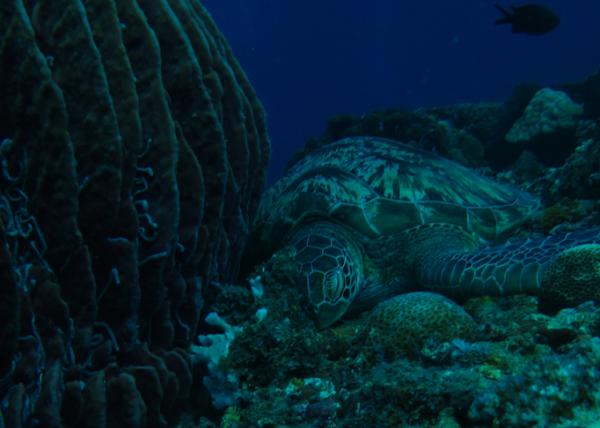Animal Viewing - Respectful diving

Human ingenuity and technology allow us to have the privilege of knowing the underwater environment, but we must remember that we are only visitors and that the animals that live there are not adapted to human presence. For this and other reasons, we must learn to understand marine life and be especially respectful when we dive. Marine and aquatic ecosystems are extremely fragile. Although at first glance they may seem like rocks or plants, some may be camouflaged and delicate aquatic organisms that can die by a little bump (even from a camera or a knee). The simple breaking of a piece of coral, for example, can kill it and it takes dozens of years to develop.
To avoid negative consequences in our activity, we list here some tips for a responsible dive:
- Dive only with responsible companies that have, and enforce, strict conservation measures and environmental protection. If during our trip we witness that the company does not comply with the measures, let them know and share it with your travel agency so they can stop working with them.
- Learn outside the beach. First dives must always be done in swimming pools or in beach areas with sandy bottoms to learn how to move gently in the water. It is important to know how to move with the diving gear to avoid touching and damaging the environment. Be suspicious if they take you directly to the dive site: coral reefs are extremely sensitive ecosystems that may be damaged as a result of even minimal contact, so the tour operator is not showing any respect for its conservation.
- If you enter the water from the shore, do it carefully through the established routes without damaging vegetation or seabirds’ habitat.
- Check the equipment before diving and you will avoid damage to the ecosystem when dragged along the bottom, hitting coral or similar.
- Check the buoyancy to avoid landing on fragile plants or bottom. The correct calculation of the weights and neutral buoyancy can avoid damage with the flippers. Try to move as little as possible, because besides being more comfortable and spending less air, animals will get closer to you and you won’t cause any damages. This is learnt step by step, but it is essential that the first times, when the environment is not controlled and we collide with everything, it is done in areas where we don’t alter marine life.
- Keep a safe distance from everything. Enjoy being a mere observer of this wonderful environment. Look and never touch is the motto of a responsible diver.
- When diving near the seabed one must be careful not to stir up sand with the fins as it can harm the wildlife, so we will use a breaststroke style. When you want to turn away from the bottom use the fingertips to push yourself up.
- Try not to hold on to corals. Only if necessary for reasons of currents, for example, seek a rock or dead coral to maintain position. Take extreme care not to break anything or harm yourself /there might be stonefish, scorpions, fire corals or various species that can cause serious skin damage).
- Resist the temptation of taking "souvenirs". Taking corals, shells or other specimens of marine life can have serious repercussions on the ecosystem. The best option if you want to go home with some kind of memory is to take photographs. Of course, legislation and common sense ban the capture any living being during dives. Do not buy either shells, shark teeth, objects made from turtles, fish or corals under any circumstance. The demand for these souvenirs is the cause of the killing of these beings.
- Do not chase, touch or harass animals. The fact that they don’t run away from us doesn’t mean they are not afraid, they might be protecting their lair. Provoking camouflaged flatfish to swim, or groping octopus, for example, can cause them great stress. Of course, do not grab or "ride" on sea turtles. In addition to the stress that we cause them, when we touch them we remove a special film that covers their skin and protects them from parasites and other harmful elements, causing them to become ill or lower their level of protection.
- Do not target animals directly with flashlights. It’s harmful, annoying and can disrupt their protection and predation system.
- Do not feed the animals. That may lead to human dependence that can be very harmful to them. They can suffer from a modification in their diet, getting poisoned and alter their natural behaviors, showing violent behaviour towards other species and even humans.
- Take your waste with you. Sometimes the most charming tourist destinations are also the least equipped for garbage collection. For this reason it is important that we carry with us all the waste we generate and that could pollute the environment and endanger its inhabitants.
- Report and do not participate in any activity or diving that does not fulfil any of these requirements. Do not hesitate to blame other divers that you see touching or bothering animals, especially if they are guides, whose behaviour is encouraging other to do the same, and report immediately their superiors. Communicate any activity that alters the environment such as feeding, removing animals from their dens, chasing or touching, disturbing with sticks, etc.
To balance the impact of our footprint on marine ecosystems, there are many initiatives to help solve environmental problems. An example of this is to help cleaning up beaches. If all divers took away part of what they found in the bottoms, they would be much cleaner and we would certainly help the survival of numerous marine species.
